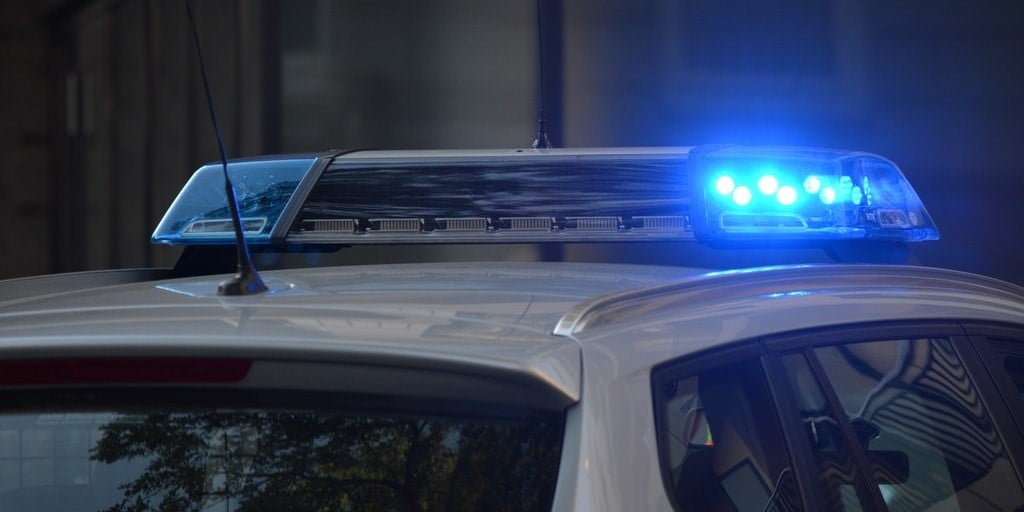Questions often come up around police stops, including whether police can stop you and whether you have to speak to them or follow their instructions if they do.

DISCLAIMER | This article is meant to be a guide, not specific legal advice for your situation. Always consult a legal clinic or speak to and/or retain a lawyer to provide you with sound legal advice that is specific to your particular situation.
Can the police stop me?
While some may assume this question is easy to answer, legally speaking the answer is complicated. The most important piece of information to know is where you are when police approach you.
Are driving a motor vehicle? Generally speaking, under each province’s legislation, the police have a great power to stop motorists operating a motor vehicle. They can often stop you for no reason at all. This is because driving is a privilege, not a right.
In addition, provincial drinking and drug legislation provides police with a large matrix of powers to stop and question you if:
- you have alcohol and/or drugs in view, whether the driver can readily access that alcohol or drug, or
- there exists at least a suspicion those substances were consumed while a driver (or even a passenger!) is in the motor vehicle or can operate the motor vehicle.
Are you legally trespassing on another’s property? If you are not on your own property, police may have the legal ability to stop you if the owner of the property has complained.
Are you travelling? You give up certain privacy rights when you are trying to leave or enter Canada. Whether you are at border control, or in the airport catching an international or domestic flight, police can stop you using various legislative powers and mandates.
Do I have to speak to police if they stop me?
There is a difference between what information you must provide police, and what information you can provide police. Again, this depends on the context and where you are or what situation you find yourself in.
Police must meet certain legal thresholds to detain and/or arrest you. This is known as either a reasonable suspicion that you may be committing an offence, or reasonable and probable grounds that you committed an offence. Police do not need to have proof beyond a reasonable doubt to arrest or detain you. Whether the police had sufficient grounds to stop or detain you is a legal question that can be litigated once your matter is in court.
Most criminal defence lawyers will advise you to remain silent if you are arrested or detained by police. However, how silent is silent? Under Canada’s Criminal Code, if you provide a false name to police (or no name at all), you can be charged with obstructing a police officer in the course of their duties. If you give fake information that causes the police to investigate something that never happened, you can be arrested and charged under the Criminal Code as well.
In the case of a motor vehicle collision, often provincial legislation competes with your duty to report and provide information (not to mention your obligation to your insurance provider) and your right to remain silent under section 7 of The Charter. If you are criminally charged, your lawyer can challenge the use of statements you made as being a legally compelled statement. They may use this general argument: if used against you at your trial, these statements would infringe the Charter of Rights and Freedoms. However, making this legal argument in court at your trial does not negate the fact that likely, under at least one statute, you are legally compelled to speak with police if you are involved in a motor vehicle collision. This includes information like admitting you were driving one of the vehicles involved.
Do I have to follow police instructions if they stop me?
Are the police asking you to take a sobriety test in relation to a motor vehicle? Then yes. This includes anything from walking a straight line, providing a urine sample, or providing a breath test. Notably, Canada’s Criminal Code now says the minimum fine for blowing double the legal limit or more is the same minimum fine as refusing to provide a breath sample to police – both carry a fine of $2000. And the punishment is higher for refusing to take a lawfully demanded breath test (again, a fine of $2000) compared to if you provide a breath sample to police and blow over the legal limit but less than double the legal limit (a fine of $1000 or $1500, depending on the level).
Remember…
Whether the police demand is lawful is litigated after the fact, in court, often months if not years after your arrest.
If you are arrested or detained, police are duty-bound to provide you an opportunity to speak with a lawyer under section 10 of the Charter of Rights and Freedoms. This may be a lawyer you know or duty counsel. If you have any questions upon your arrest or detention, ask the lawyer you speak with for clarification before you make any decisions that can gravely affect your well-being, case, or legal interests.
Looking for more information?
Disclaimer
The information in this article was correct at time of publishing. The law may have changed since then. The views expressed in this article are those of the author and do not necessarily reflect the views of LawNow or the Centre for Public Legal Education Alberta.
Looking for articles like this one to be delivered right to your inbox?

